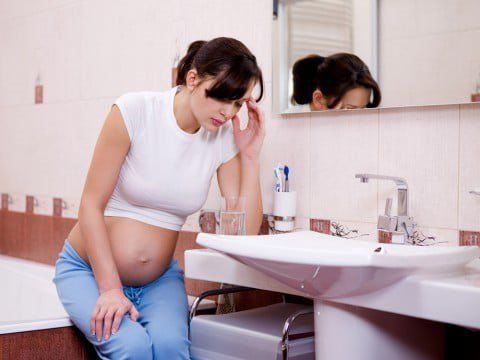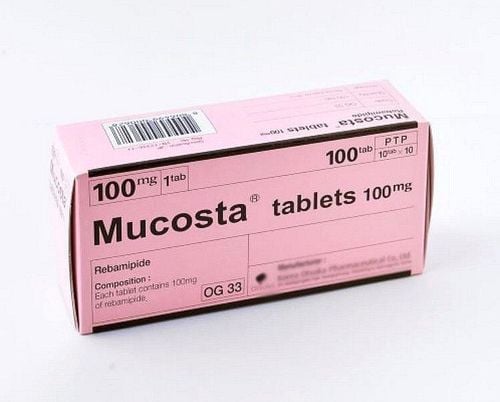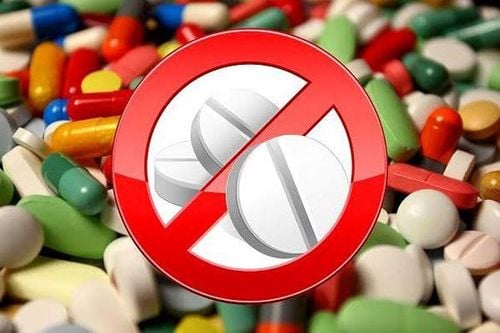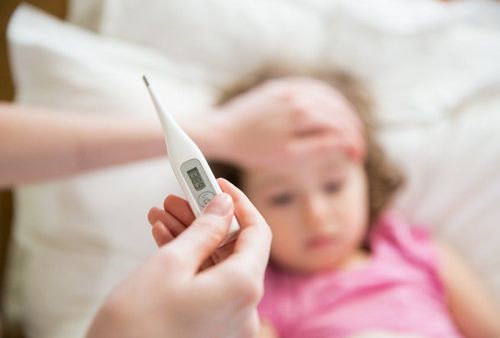This is an automatically translated article.
Viral fever, also known as viral fever, is a common summer illness among children. The disease is caused by many viruses, mainly respiratory viruses. The disease is very contagious and spreads quickly into epidemics. But not all parents know how to properly handle a child with a viral fever, many parents, when they see their child has a high fever, immediately give them antibiotics but do not see a cure. So can viral fever in children go away on its own without antibiotics?
1. Manifestations of viral fever in children
Viral fever in children is caused by many different viruses
When a child has a viral fever, they will often have the following symptoms:
Children often have a high fever of 38 - 39 degrees Celsius, even some cases of high fever up to 40 - 41 degrees Celsius. When a child has a high fever, they are often tired and have little response to common fever-reducing drugs. When the fever is low, the child is awake and playing normally. Children with body aches, with older children will complain of muscle pain, pain all over the body. For young children who do not know how to speak, children will show signs of crying a lot, refusing to breastfeed. Children have headaches, some children have headaches but are still awake, not excited. In addition, children may have symptoms such as coughing, sneezing, stuffy nose, runny nose, loss of appetite,... Depending on the virus that the child is infected with, there will be other specific symptoms such as:
If the cause is a gastrointestinal virus, the child will have additional symptoms such as digestive disorders, diarrhea, loose stools, no blood, no mucus. These symptoms usually appear later, a few days after the fever. Children have watery eyes, red eyes, a lot of mucus and are very sensitive to light. If the cause is a dengue virus, the child will have bleeding gums, nosebleeds, or skin bleeding, etc. There are cases where the child has a rash or blisters. Erythema usually appears 2-3 days after fever, when fever symptoms have subsided.
2. How long does it take for a child to have a viral fever?
Because children's bodies do not have enough resistance to fight pathogens, so many children have to be hospitalized for viral fever during summer days. Normally, in the body, there are always parasitic viruses in the respiratory tract, digestive tract, ... when meeting favorable conditions, they will thrive and cause disease.
Symptoms of the disease often appear in a rush for 3 - 5 days, then will gradually decrease, after 7-10 days, they will be completely cured with proper treatment.
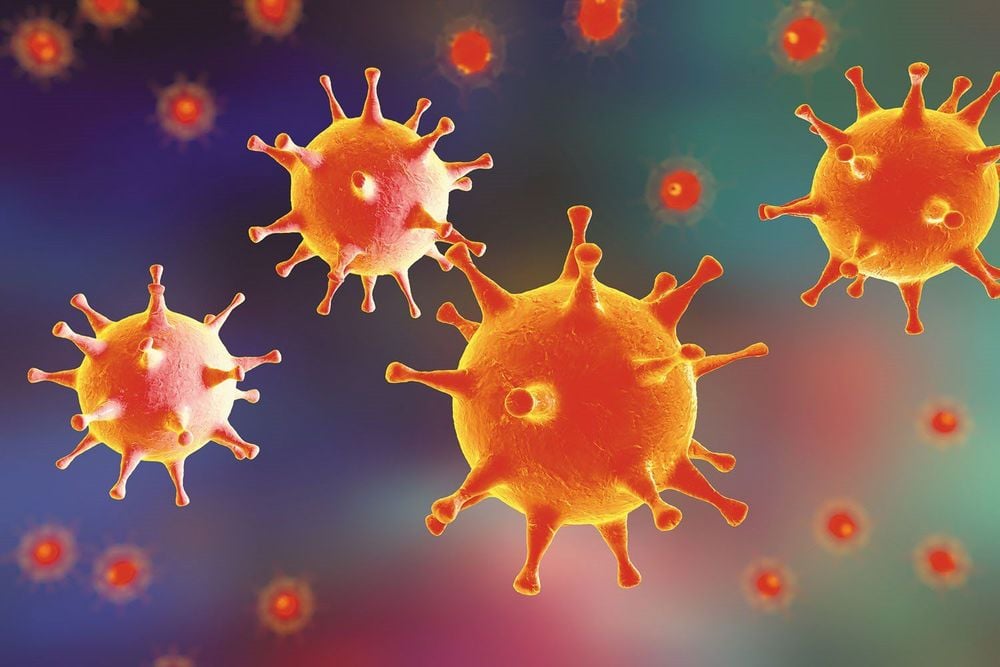
3. Is viral fever in children dangerous?
Viral fever in children is usually not dangerous, when treated actively, the disease will quickly subside
However, the progression of viral fever is fast, if the child is not treated properly and promptly, it is completely fatal. can lead to dangerous complications.
4. What medicine do children with viral fever take?
Can viral fever in children go away on their own without antibiotics? Many parents, when they see that their child has a fever, immediately give them antibiotics. This is absolutely not good, because antibiotics only work to kill bacteria, but are not able to kill viruses. Therefore, when the child has a viral fever, there is no superinfection, there is no need to use antibiotics.
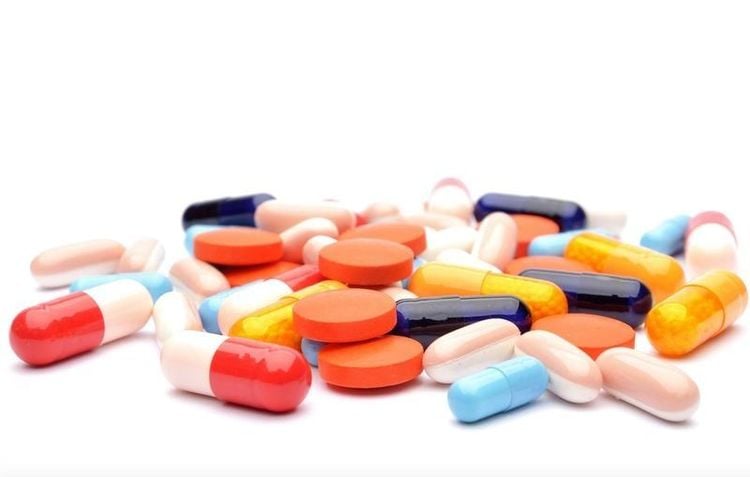
Treatment of viral fever is mainly symptomatic treatment, because most viral diseases have no specific treatment. Here's how to handle when a child has a viral fever:
Let the child lie in a cool room, do not let drafts, and at the same time, the room temperature should not be too low compared to the child's body temperature.
Monitor the child's temperature: use a thermocouple in the armpit or anus. When the thermometer is in the armpit, keep the thermometer in the armpit for at least 3 minutes, the baby's arm close to the chest. When the child has a fever, it is necessary to reduce the fever by:
When the child has a high fever above 38.5 degrees Celsius, it is necessary to give the child fever-reducing medicine. The drug commonly used is Paracetamol with a dose of 10 - 15 mg/kg body weight/time, 4 to 6 hours apart. Parents can cool the child with a cool towel, regularly dry the sweat, let the child wear thin, cool clothes. When a child has a high fever, it is necessary to remove clothes and remove blankets. When the child has a fever below 38.5 degrees Celsius, wipe the child's body with warm water. Use a clean, soft towel, dip it in warm water, wring it out, and then wipe it all over the baby's body, especially in the armpits and groin, until the temperature drops to 37 degrees Celsius. Note: absolutely do not apply cold water because Cold water will cause peripheral vasoconstriction, increasing fever. Anti-convulsants: When children with high fever are most likely to have convulsions, this is a dangerous condition, which can leave sequelae later. Therefore, when the child has a high fever of over 38.5 degrees Celsius, the doctor may prescribe anticonvulsant drugs for the child, especially for children who have had a seizure with high fever before.
Need to rehydrate and electrolytes for children: When the fever is high, the child sweats a lot, the child will lose water and electrolytes, so it is necessary to compensate the child. For babies who are still breastfeeding, mothers need to breastfeed more than usual, and breastfeed many times a day. For babies who are no longer nursing, give Oresol as directed.
Implement measures to prevent superinfection: Parents need to clean the baby, use 0.9% sodium chloride for eye drops, nose drops for children, to prevent respiratory bacterial superinfection.
Nutrition: When a child has a viral fever, children often have anorexia, so mothers need to pay attention to their nutrition, should choose dilute and easy to eat dishes such as porridge, soup, .. In addition Children need to drink more fruit juices such as orange juice, lemonade, ... to strengthen their resistance.
Hygiene: Parents need to clean the child's body, use warm water to bathe the child in a closed room, avoiding drafts.
Because viral fever is a contagious disease, when a child shows signs of illness, it is necessary to keep them away from school and limit contact with others, especially other children, until they recover from the illness.
5. When to take the child to the doctor?
Parents need to monitor their children regularly, take them to medical facilities as soon as they have one of the following signs:
The child has a high fever above 38.5 degrees Celsius, especially when the fever is over 39 degrees C that do not respond to conventional antipyretics. Children appear lethargic, lethargic. Children have convulsions. The child has a constant and increasing headache, nausea and vomiting repeatedly. The child has a fever for more than 5 days. When a child has one of the above symptoms, parents need to take the child to the doctor immediately, so that the doctor can examine and give an appropriate treatment plan to prevent dangerous complications for the child.
In summary, viral fever in children can be resolved without the use of antibiotics. Antibiotics are only used in cases of viral fever with bacterial superinfection, and the use of drugs must comply with the instructions and instructions of the doctor. People absolutely must not use antibiotics to treat viral fever without a doctor's prescription.
Pediatrics department at Vinmec International General Hospital is the address for receiving and examining diseases that infants and young children are susceptible to: viral fever, bacterial fever, otitis media, pneumonia in children, .... With modern equipment, sterile space, minimizing the impact as well as the risk of disease spread. Along with that is the dedication from the doctors with professional experience with pediatric patients, making the examination no longer a concern of the parents.
Please dial HOTLINE for more information or register for an appointment HERE. Download MyVinmec app to make appointments faster and to manage your bookings easily.
Articles compiled from the source: Suckhoedoisong.vn; Vnexpress.net





